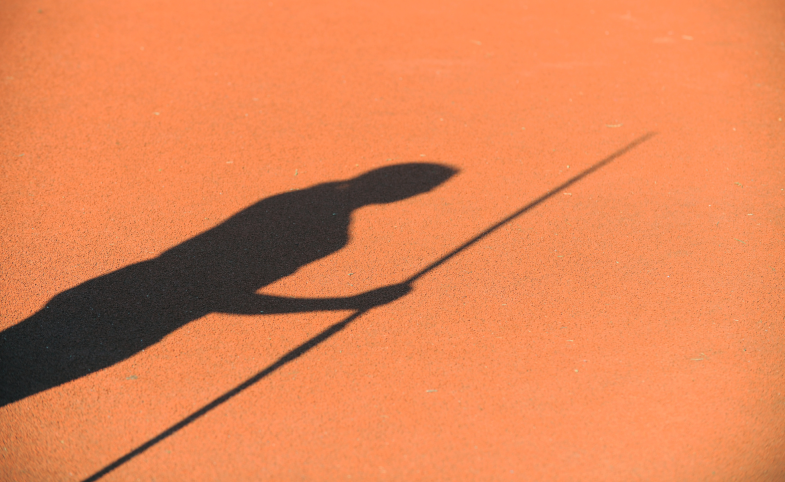Launched in 1948, Fulbright’s Student Program has become a popular initiative for those seeking postgraduate education. Due to an ever-rising number of applications, the U.S., in cooperation with the government of Mongolia,...
KEEP READINGThe CPD Blog is intended to stimulate dialog among scholars and practitioners from around the world in the public diplomacy sphere. The opinions represented here are the authors' own and do not necessarily reflect CPD's views. For blogger guidelines, click here.

Why the Olympics Matters for Smaller Sporting Nations
It was an electrifying environment at the Stade de’ France, with 70 thousand fans watching the Paris Olympics’ track and field competition. All eyes were on the Javelin event where Pakistan's Arshad Nadeem and India's Neeraj Chopra--erstwhile Fri-vals (friends and rivals)--were competing for glory. On Nadeem’s second attempt, his javelin glided through the air and landed at 92.97 meters, securing a gold for Pakistan. The crowd chanted in enthusiasm, having witnessed a new Olympic record. Few had expected that a minor athletic nation like Pakistan would achieve such a tremendous feat in an event traditionally dominated by Western European athletes. Chopra came in second, earning a silver medal for India--a feat in its own right.
Nadeem’s throw was not the only remarkable achievement by small sporting nations during the Paris Summer Olympic 2024. Botswana’s Letsile Tebogo' 200 meters’ sprint in 19.46 was equally extraordinary, earning the first ever Olympic gold for the southern African nation. Then there was Albanian Chermen Valiev’s medal in wrestling; Saint Lucian Julien Alfred’s gallant effort to win gold in the Women's 100 Meters; Adriana Ruano's Olympic gold in the trap-shooting final and Dominican Thea LaFond's gold medal in the men’s triple.
For big sporting nations like the United States, China, and the U.K., the Olympics is a platform to showcase athletic prowess and global status. For smaller nations, the Olympics is an opportunity to improve soft power, celebrate their athletes and foster national unity. Participation in the event itself brings great joy and an opportunity to showcase culture and national spirit for the small nations.
For big sporting nations like the United States, China, and the U.K., the Olympics is a platform to showcase athletic prowess and global status. For smaller nations, the Olympics is an opportunity to improve soft power, celebrate their athletes and foster national unity.
The nineteen days of competition, which were covered by 36 media right holders and viewed by more than half of the global population, the Olympics were truly "mega" in every possible way. The social media engagement during Paris 24 was unprecedented, with over 32 million new followers joining the Olympics social media, generating 12 billion engagements. Truly, the Olympics represents the globalization of sports and provides avenues for collaboration. The event bridges cultural barriers, forges friendships and inspires sportsmanship. Olympics spotlights extraordinary determination and celebrates dedicated athletes who have made it their mission to bring glory to themselves and their nations.
The Olympics also signifies the concept of Ekecheiria in ancient Greece, which marked a truce between the Greek city-states and reduced the rivalry between them. The spirt of ‘Ekecheiria’ remains integral to the Olympics philosophy, where the success of players is acknowledged by their countrymen and opponents alike. The example of Pakistan and India in this year's javelin contest demonstrates how two nations can put aside their traditional animosity and find common ground through sport. The event's significance and impact was evident on social media: #arshadnadeem was posted 652,000 time on Facebook, while #neerajchoopra was posted 602,000 times. Nadeem’s winning throw has more than 5.6 million views on the official YouTube page of Olympics.
The idea of people, community and nations coming together for the love of sport brings unique importance to mega-events like the Olympics. "Athlete ambassadors" can generate widespread attention and inspire people across the globe. These athletes are, in effect, public diplomats who project the soft power of their respective countries. Events such as the Olympics, the World Cup, and other world championship tournaments provide opportunities for nations large and small to shape perceptions and attract positive attention. Standing at the winner’s podium with the national anthem ringing out and national flag hoisted in front of thousand spectators, as well as members of the media, athletes can attract global attention that sometimes lasts long after the Games. Success at the highest sporting stage creates major branding opportunities for smaller nations, such as Pakistan, Botswana, Albania and Saint Lucia, which earned massive global attention due to their athletes' performance in Paris and enhanced their soft power significantly.
Visit CPD's Online Library
Explore CPD's vast online database featuring the latest books, articles, speeches and information on international organizations dedicated to public diplomacy.
POPULAR ARTICLES
-
January 29
-
January 20
-
January 28
-
February 6
-
January 8
Join the Conversation
Interested in contributing to the CPD Blog? We welcome your posts. Read our guidelines and find out how you can submit blogs and photo essays >.













